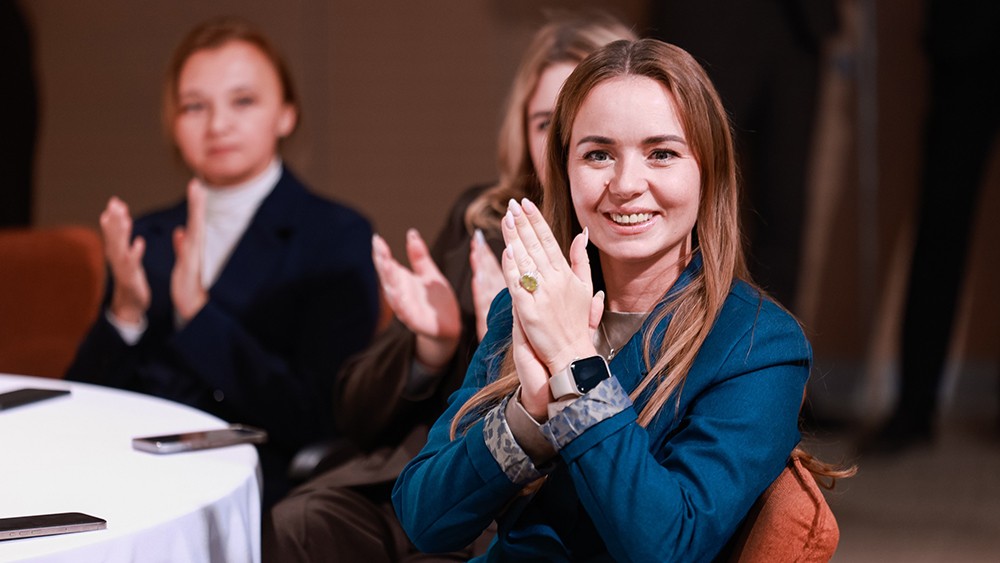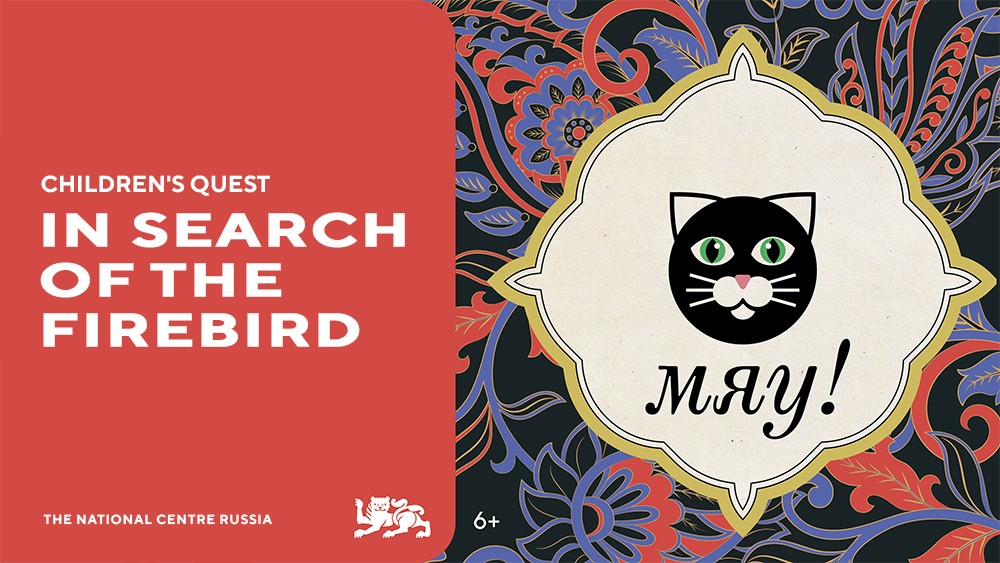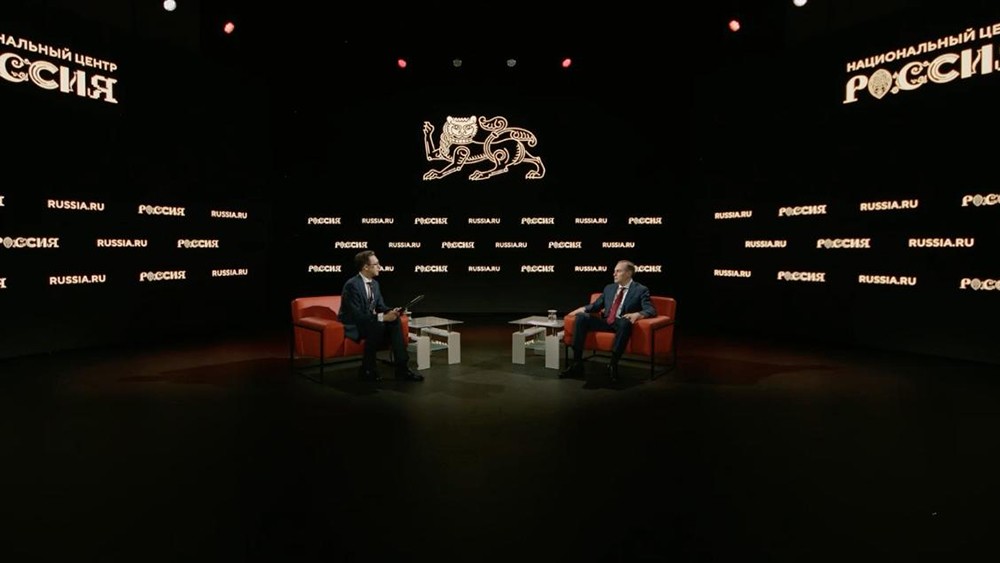Kapitsa Phystech Lyceum and the Phystech Schools Development Foundation launched the project "Open School: Presentation of Best Practices" at the National Centre RUSSIA
On November 22, the National Centre RUSSIA hosted the launch
of the project "Open School: Presentation of Best Practices" — an
educational and enlightening platform designed for the exchange of experiences
and ideas among educators, students, parents, graduates of pedagogical
universities, and young professionals. The first event in the series of
meetings within the project was held with the participation of the Phystech
Lyceum named after Pyotr Kapitsa.
For several
years, the General Education School of Natural Sciences "Phystech
Lyceum" has maintained its status as a leader in education in the Moscow
region. Since its opening in 1991, it has evolved from a small general
education school to an All-Russian cluster of natural science education. For
the past ten years, the lyceum has borne the name of the outstanding Soviet
physicist, engineer, and Nobel laureate Pyotr Leonidovich Kapitsa, whose 130th
birth anniversary is celebrated this year.
"Opening
such a project is a great responsibility because being the first is always
challenging. Everyone is watching, observing, they are the example for
others. That’s why we must always move forward and set new goals — we are
currently working on a development project for the lyceum through 2035. We have
every opportunity to remain leaders. And I always tell the students that they
also have all the opportunities; the key is to know how to use them," said
Marina Mashkova, Director of the AIEO "Phystech Lyceum" named after
P. L. Kapitsa.
On behalf
of the Ministry of Education of the Russian Federation, Pavel Belokon, Deputy
Director of the Department for the Development of Education Systems in
Individual Subjects of the Russian Federation, addressed the meeting
participants.
"Natural
science education is a priority in Russia's education system because it is the
key that will allow us to achieve national goals. The Ministry is doing
a lot to develop this area of education. However, even from 'the centre,' it is
impossible to do what creative leaders in education accomplish. I am confident
that the best educational practices you present here today will help make the
educational process in our country more effective and of higher quality,"
said Pavel Belokon.
In the
format of dynamic interactive lectures, leading educators of the institution
demonstrated the most effective educational practices and explained how to
apply them in real life.
Andrei
Bogdanov, Head of the Lyceum’s Technopark, delivered a lecture titled
"Traditions-Talents-Technologies: Phystech Education and the Preparation
of Russia’s Future Technological Leaders." The audience learned about
advanced projects of the natural science school cluster ecosystem, the
importance of career development in scientific activities, new project
opportunities for students, and prospects for international cooperation within
the cluster.
Yelena
Salnikova, Deputy Director for Scientific and Methodological Work and Head of
the Lyceum's Department of Biology and Chemistry, shared how education at the
Phystech Lyceum becomes the foundation for successful socialization and
professional development for young people. She highlighted the
advantages of studying in the physics and mathematics field and its
significance for the sustainable development of the country.
Andrei
Kiselev, Head of the Experimental Project Laboratory at ION RANEPA, architect,
illustrator, and lecturer, conducted an interactive lecture titled
"Virtual Worlds and Professions of the New Era." The participants
were introduced to the profession of a virtual world architect and the
functionality of hybrid specialists. They also witnessed the practical
application of tools that transform familiar objects into captivating virtual
expositions.
The Head of the Theatre Workshop of the
"CreativeTech" division at the Lyceum Technopark, Nikita Kalinin,
spoke about the importance of creativity for individuals, the advantages of
creative thinking, and how to develop creative abilities to solve complex
problems. The audience also learned about the methods and practices of the
"CreativeTech" division and how educators apply them.
Concluding
the first event in the series, history and social studies teacher Oleg Samsonov
conducted a master class titled "Debates as an Effective Tool for Student
Self-Presentation in a Modern School."
The
educational and enlightening project "Open School: Presentation of Best
Practices" was created to support and develop the educational environment.
It aims to serve as a platform for discussing innovative approaches and
ideas in education, bringing together all participants in the educational
process and emphasizing the significance of each in the modern educational
system.
One of the
main goals of the project is to demonstrate that school education can and
should be engaging and productive, uncovering talents and helping every young
person become successful, in-demand, and happy.
Participants
of the meetings can look forward to dynamic presentations by experts, showcases
of the best practices from educational institutions, valuable author-led master
classes for parents and students, and much more.
The
National Centre RUSSIA was established by order of the President of the Russian
Federation, Vladimir Putin, to preserve the legacy of the International RUSSIA
EXPO and to showcase the achievements of the country and its citizens on a
permanent basis. Federal government agencies, state companies,
corporations, and regions take part in the Centre’s work.
The
National Centre RUSSIA is located at 14 Krasnopresnenskaya Embankment, Moscow. The
Centre is open from 10:00 to 20:00 every day except Monday.



